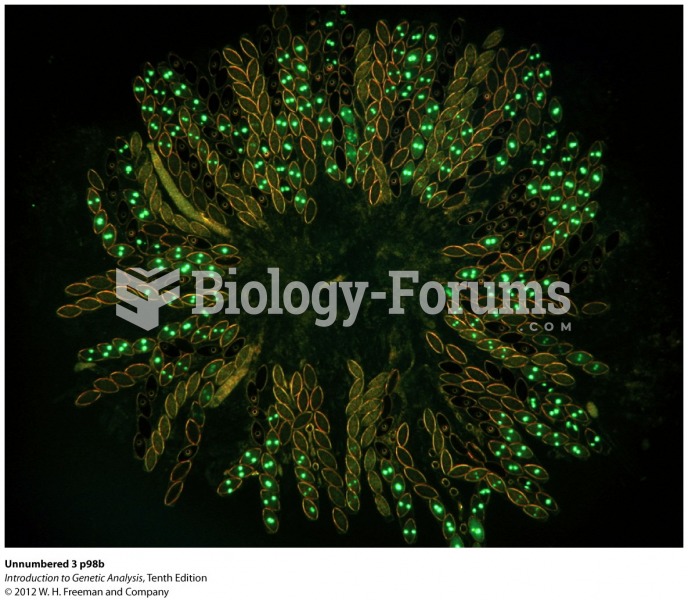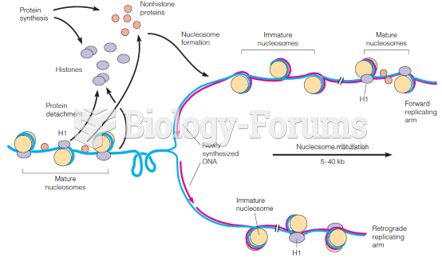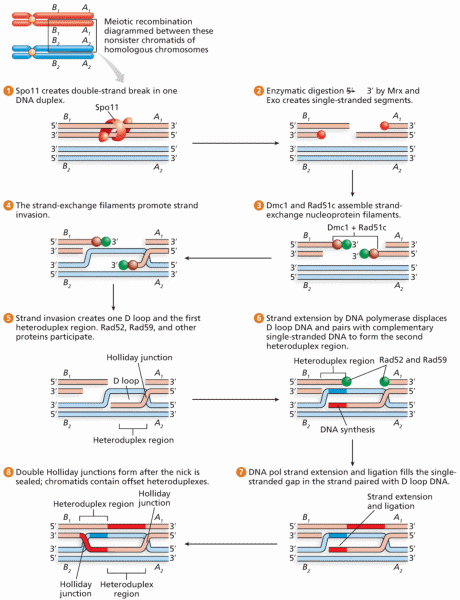|
|
|
More than one-third of adult Americans are obese. Diseases that kill the largest number of people annually, such as heart disease, cancer, diabetes, stroke, and hypertension, can be attributed to diet.
Anesthesia awareness is a potentially disturbing adverse effect wherein patients who have been paralyzed with muscle relaxants may awaken. They may be aware of their surroundings but unable to communicate or move. Neurologic monitoring equipment that helps to more closely check the patient's anesthesia stages is now available to avoid the occurrence of anesthesia awareness.
There are over 65,000 known species of protozoa. About 10,000 species are parasitic.
Human stomach acid is strong enough to dissolve small pieces of metal such as razor blades or staples.
In 1864, the first barbiturate (barbituric acid) was synthesized.







